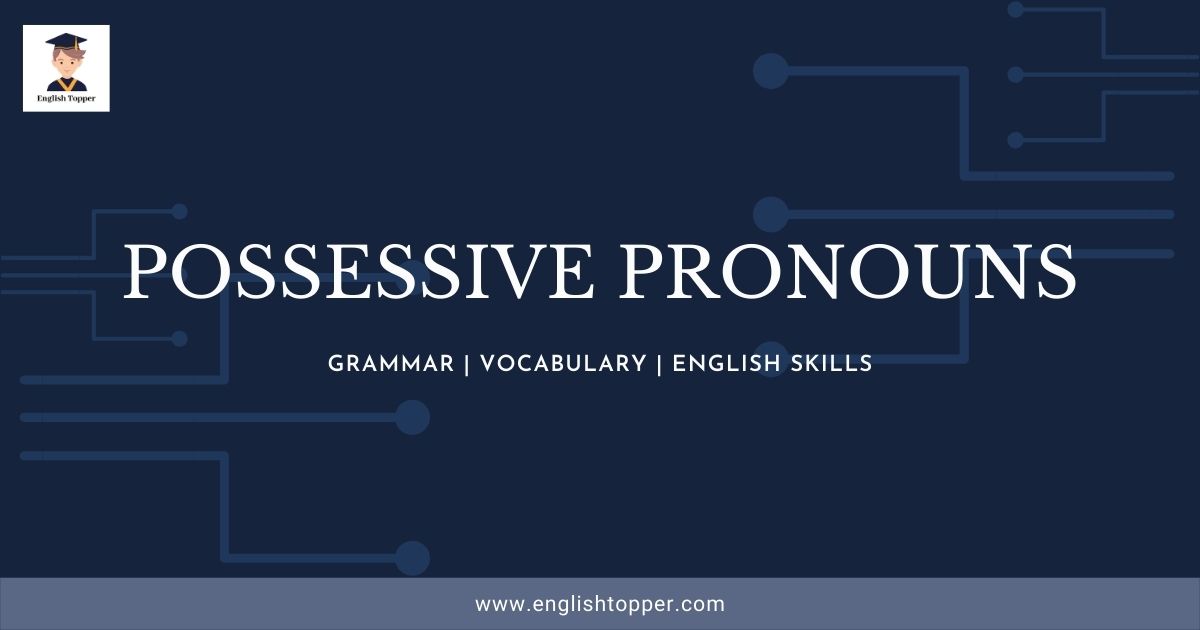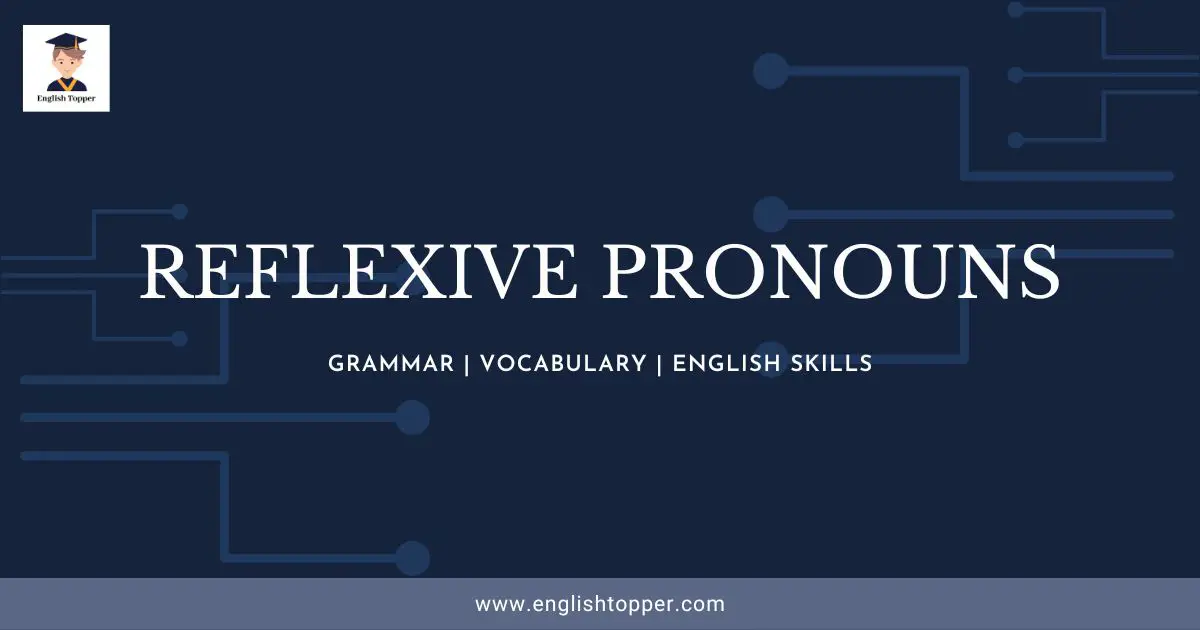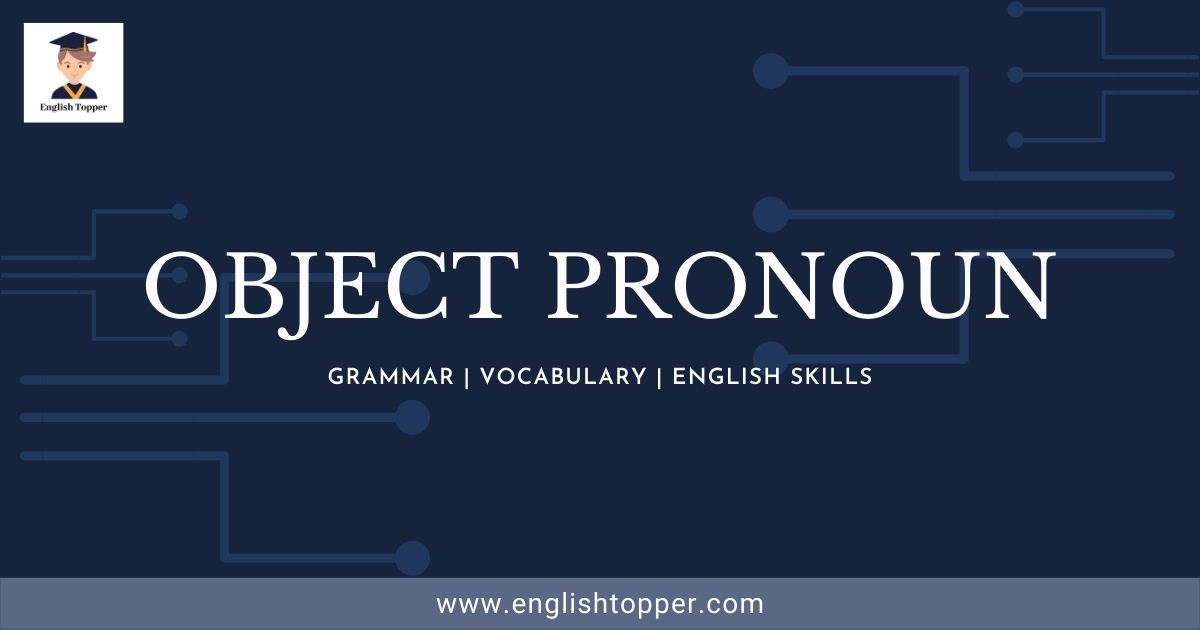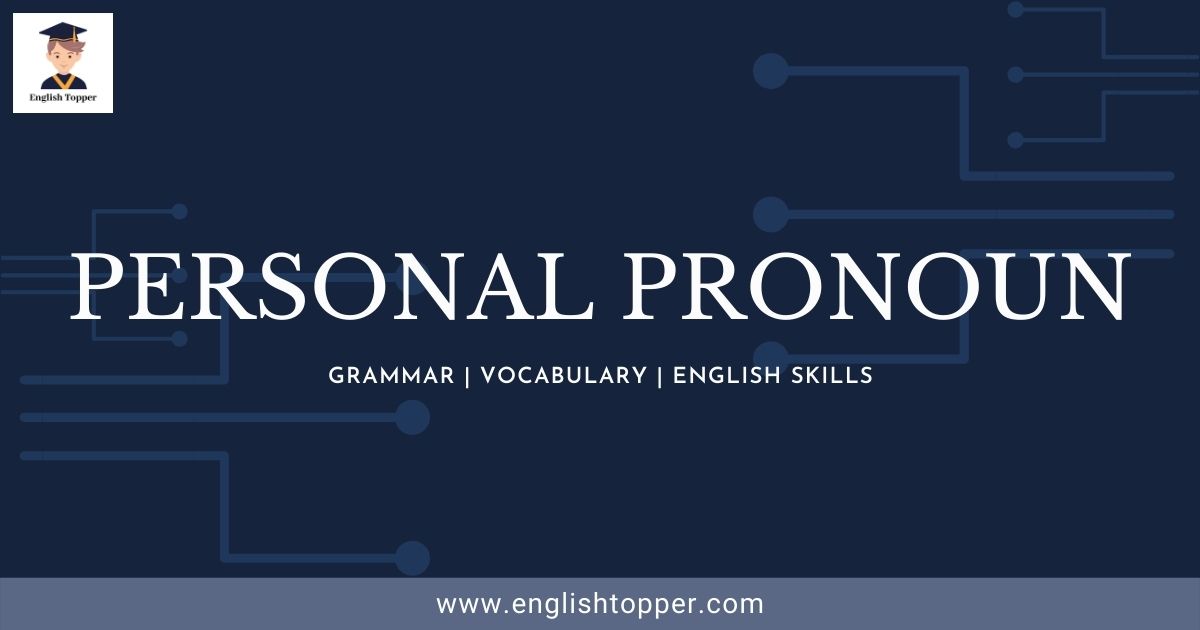Table of Contents
What Possessive Pronouns can do?
Possessive Pronouns are the types of pronoun which replaces the noun and takes ownership of something in the sentence. For example, mine, yours, his, hers, etc. It is also called “Absolute Possessive Pronoun” or “Strong Possessive Pronoun”.
In simple words, the Possessive pronoun describes who owns it and replaces the noun to avoid repetitions in the sentence. Let us consider a few examples of Possessive Pronouns to make it clearer to understand.
Example Sentence: Your phone has more features than my phone.
Let us break the sentence into different segments based on the Parts of Speech. We all know that a sentence contains a subject (S), verb (V) and object (O).
Sentence Structure: Your phone (S) + has (V) + more features than my phone (O).
So, the above sentence can be simpler by replacing the words “my phone” with the possessive pronoun “mine” in the object segment.
Possessive Pronoun: Your phone has more features than mine.
Note: Also note that the Possessive pronouns can be either,
- Subject or object in the sentence.
- Refer to a singular or plural antecedent.
To learn more about sentence structure and its rules, then click here.
A sentence can be defined as a set (or group) of words which gives proper meaning to it. It is also defined as a group of words which gives a complete message, either it may be an idea, expression or interrogation (question).
Possessive Pronouns List
Subject Pronoun | Possessive Pronoun |
He | His |
She | Hers |
It | Its |
I | Mine |
You | Yours |
We | Ours |
They | Theirs |
More Possessive Pronouns Examples
Below are a few examples of Possessive Pronouns that can be used to refer to understand this topic better.
- I didn’t have my textbook for Science class, so Brian lent me his.
- Rose liked Mary’s dress, so she asked for hers to wear for a party.
- I used to take care of these things, so it’s mine.
- Is this pen yours?
- Julia’s party was great, but just wait until she comes to ours.
- My house design is good, but I liked theirs.
- I have found my car keys, but I couldn’t find yours.
- Your future plans sound just as exciting as mine!
- The house on the right corner is theirs.
- Everyone’s handwriting was good, but I liked his.
Possessive Pronouns based on the Gender
These type of pronouns usage in the sentence varies based on various factors such as,
- Number: Singular (ex: mine) and Plural (ex: ours).
- Person: 1st person (ex: mine), 2nd person (ex: yours) and 3rd person (ex: his).
- Gender: Male (ex: his) and Female (ex: hers).
The below table refers to the pronouns based on the gender and person’s point of view in brief.
Number | Person's View | Gender | Possessive Pronoun |
Singular | 1st Person | Male / female | mine |
Singular | 2nd Person | Male / Female | yours |
Singular | 3rd Person | Male | his |
Singular | 3rd Person | Female | hers |
Plural | 1st Person | Male / Female | ours |
Plural | 2nd Person | Male / Female | yours |
Plural | 3rd Person | Male / Female/ Neuter | theirs |
Possessive Adjective vs Possessive Pronouns
The possessive adjective may look similar to the possessive pronouns, but they work differently, and this might create some confusion while learning. So, let us understand the difference between them.
Possessive Adjective | Possessive Pronoun |
his | his |
her | hers |
my | mine |
your | yours |
our | ours |
your | yours |
their | theirs |
Also Read: What is a Pronoun? | Pronoun Definition and Examples (2022)
The pronoun is a part of speech which replaces the repeated Noun in the sentence. For example, he, she, it, we, they, you, etc. The concept of Pronoun is introduced so that the Noun can be replaced, and it has the same function as a Noun.
Rules of Possessive Pronoun
Rule 1: This type of pronoun should be used to describe the ownership and to avoid repetition in the sentence.
Below are a few examples that can be referred to.
Example Sentences:
- Your height is taller than hers.
- His financial condition is better than yours.
- He likes to roam in your car more than his.
Rule 2: This type of form is the same for both singular and plural forms.
Below are a few examples that can be referred to.
Example Sentences:
- Singular: Whose pen is this? – It’s mine. (_/)
- Plural: Whose pens are these? – It’s mine. (_/)
- Plural: Whose pens are these? – It’s mines. (X)
Rule 3: We shouldn’t use nouns after Possessive pronouns.
Below are a few examples that can be referred to.
Example Sentences:
- Incorrect: Whose books are these? – They’re ours books. (X)
- Correct: Whose books are these? – They’re ours. (_/)
From the above sentence, we can observe that the noun (books) is used after the possessive pronoun (ours) which is an incorrect use.
Rule 4: Possessive pronouns will never have an apostrophe.
Below are a few examples that can be referred to.
Example Sentences:
1) A common mistake: its vs. it’s
- Incorrect: Don’t judge a book by it’s cover. (X)
- Correct: Don’t judge a book by its cover. (_/)
Here, “it’s” is the short (contraction) form of “it is” and “its” is used to show the ownership of the book.
2) We shouldn’t use apostrophes for ‘ours’, ‘yours’, ‘hers’ and ‘theirs’.
- Incorrect: Neha likes Somya’s dress. So, she is taking her’s.
- Correct: Neha likes Somya’s dress. So, she is taking hers.
Here, “hers” is used to show the ownership of the dress. There is no word for “her is” for “her’s”. So it is not a contraction form, and it is incorrect to use.
Quiz Time!
#1. "That is her car and this one here is my car". Identify the correct Possessive adjective.
#2. "I like your painting. Do you like _____?" Choose the correct option that contains Possessive Pronoun.
#3. "John paid his taxes. What about _____?" Choose the correct option that contains Possessive Pronoun.
#4. "They scored good marks this time. What about ______?" Choose the correct option that contains Possessive Pronoun.
#5. Whose pen is this? Identify the correct option.
#6. Is the given sentence contains Possessive Pronoun? "They're my friends."
#7. Does the sentence ("These are yours".) contains Possessive Pronouns?
#8. "Everyone's favourite snack is Pizza. What about _____?" Identify the correct option that contains possessive pronoun.
#9. "How many times I have to say that this toy is ______?" Identify the correct option that contains possessive pronoun.
#10. "I like all your toy collections." Does the sentence contains Possessive Pronoun?
Answer: The given sentence contains Possessive Adjective.
Possessive Adjective: I like all your toy collections.
Possessive Pronoun: I like all yours.
Results
|
Getting your Trinity Audio player ready...
|
Hurray….. You have passed this test! 🙂
Congratulations on completing the quiz. We are happy that you have understood this topic very well.
If you want to try again, you can start this quiz by refreshing the page.
Otherwise, you can visit the next topic 🙂
|
Getting your Trinity Audio player ready...
|
Oh, sorry about that. You didn’t pass this test! 🙁
Please read the topic carefully and try again.
Summary
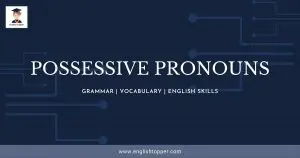
Here are a few points to summarize the whole topic which we have mentioned till now.
- The Possessive Pronoun is used to replace the noun and mention the ownership of the subject or object in the sentence. It is also called Absolute Possessive Pronoun.
- Some examples of Possessive Pronouns are his, hers, yours, ours, theirs, etc.
- It is based on various factors such as gender, number and person’s view.
- This type of pronoun shouldn’t be used after the noun in the sentence.
- The form of these pronouns is same for both Singular and Plural forms.
- It can be either subject or object in the sentence.
If you are interested to learn more, then you can refer to Wikipedia here.
I hope that you understood the topic. If you still have any doubts, then comment down below, and we will respond as soon as possible. Thank you 🙂

